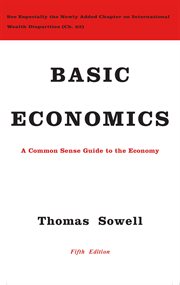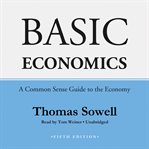Basic Economics
eBook - 2014
The bestselling citizen's guide to economics. Basic Economics is a citizen's guide to economics, written for those who want to understand how the economy works but have no interest in jargon or equations. Bestselling economist Thomas Sowell explains the general principles underlying different economic systems: capitalist, socialist, feudal, and so on. In readable language, he shows how to critique economic policies in terms of the incentives they create, rather than the goals they proclaim. With clear explanations of the entire field, from rent control and the rise and fall of businesses to the international balance of payments, this is the first book for anyone who wishes to understand how the economy functions. This fifth editio...n includes a new chapter explaining the reasons for large differences of wealth and income between nations. Drawing on lively examples from around the world and from centuries of history, Sowell explains basic economic principles for the general public in plain English.
- Subjects
- Published
-
[United States] :
Basic Books
2014.
- Language
- English
- Corporate Author
- Main Author
- Corporate Author
- Online Access
- Instantly available on hoopla.
Cover image - Physical Description
- 1 online resource
- Format
- Mode of access: World Wide Web.
- ISBN
- 9780465056842
- Access
- AVAILABLE FOR USE ONLY BY IOWA CITY AND RESIDENTS OF THE CONTRACTING GOVERNMENTS OF JOHNSON COUNTY, UNIVERSITY HEIGHTS, HILLS, AND LONE TREE (IA).



